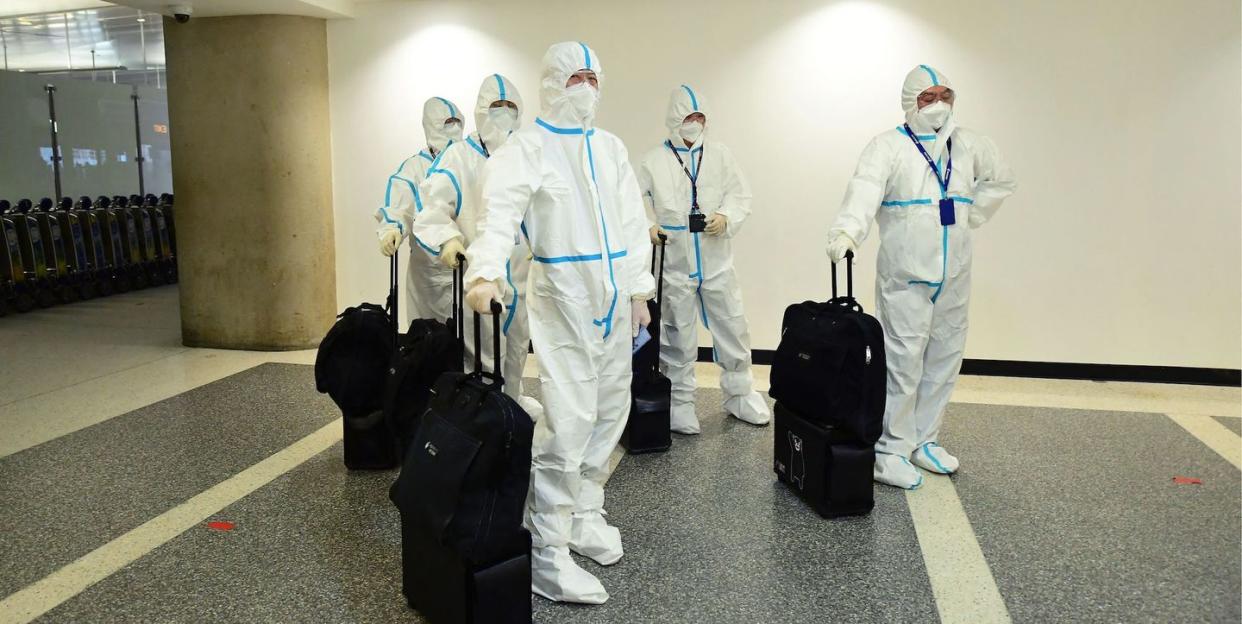Please Stop With the Omicron Panic

We are still waiting for the picture to come into focus on the Omicron variant. There are three main questions that need answering:
Is it more contagious than other strains?
Does it cause more serious disease?
Does it evade the vaccines at a level that disrupts the new equilibrium we've settled on as a society? And relatedly, will it require a booster dose?
These things are all relative and fluid. The early evidence suggests the variant is very contagious and a third dose makes a significant difference, but we don't know a whole lot for sure. This is not something you would have gleaned from much of the news media, however, which has reported on Omicron cases like they are Ebola from the first moment the World Health Organization announced there was a new variant of concern. We should obviously monitor this situation very closely, but the coverage has been completely irresponsible. On Monday, we were treated to another example of this from the venerable newswire Reuters, which prides itself on Objectively Relaying the Bare Facts, No Chaser.
The headline?
Most reported U.S. Omicron cases have hit the fully vaccinated -CDC
And how many cases were examined?
43.
Of the 43 people, 34 were vaccinated. Just for context, the United States has seen 50 million reported COVID cases. (In reality, as with "reported" Omicron cases, there are far more actually out there.) But we're making this grand statement based on 43 examples. Was there an explanation for why these particular cases constituted a representative sample that would be useful in extrapolating what we can expect throughout the general population? No. But they did get me to click on the article. Because I am fully vaccinated and I am interested in whether the Omicron variant will break through the vaccine defenses. Not that you could learn that, really, from this article, which will serve primarily as a cudgel for anti-vax types to beat the rest of us with. God knows they won't be concerned about the sample size, even after all the research experience they're getting down in their basements.
How many people, anti-vax or otherwise, will get far enough down the story to read that most of the 43 people had mild symptoms, and just one was hospitalized for two days? Couldn't this also be the headline?
Most reported U.S. Omicron cases have mild symptoms -CDC
Or maybe we could just not make global claims based on such a small sample size!
Everyone in this business wants to write a story, and a headline, that will get people reading. But we have some obligations here when the balance of life we've settled on in recent months is so delicate. Can we just wait for more evidence that we should freak the fuck out before doing so? Can we not do this?
This also gets at some interesting questions with regard to Objective Journalism. Reuters is reporting on a CDC report here, but added the following: "While the numbers are very small, they add to growing concerns that current COVID-19 vaccines may offer less protection against the highly transmissible new variant." But the job, as a disseminator of information, involves making a determination as to whether the numbers are too small to legitimately add to those growing concerns, concerns that you're helping to grow by publishing this article under this headline. Does making that determination constitute having an opinion about the story, and allowing your opinion to impact how and whether you report it? Or do all of these decisions have a subjective element that is unavoidable considering this is a human endeavor, and deep down it's a judgment call based on some combination of knowledge, experience, and values?
(Just last week, pretty much the entire news media made the decision that the military spending bill that sailed through the House of Representatives should not be subject to scrutiny with regard to The National Debt or inflation. Meanwhile, the Build Back Better Act is constantly subject to that scrutiny. This was simply a subjective decision made across much of the media-political class. The defense bill is far larger on a per-year basis than the social-spending bill.)
Meanwhile, in another theater of the vaccine war, CNBC hosted the CEO of Pfizer and he already started talking about a fourth (4th!) dose. Look man, I got a booster, but let's maybe wait to ask the hot dog vendor whether we need another hot dog. This stuff is also grist for the conspiracy mill, as the tales of Big Pharma write themselves. Telling people they'll soon need a fourth dose is not the best way, in this layman's view, to get them to take a third. And while he might be right, we don't know that yet! It is conjecture from someone with a financial interest in that outcome. Surely we can do better than this.
You Might Also Like
